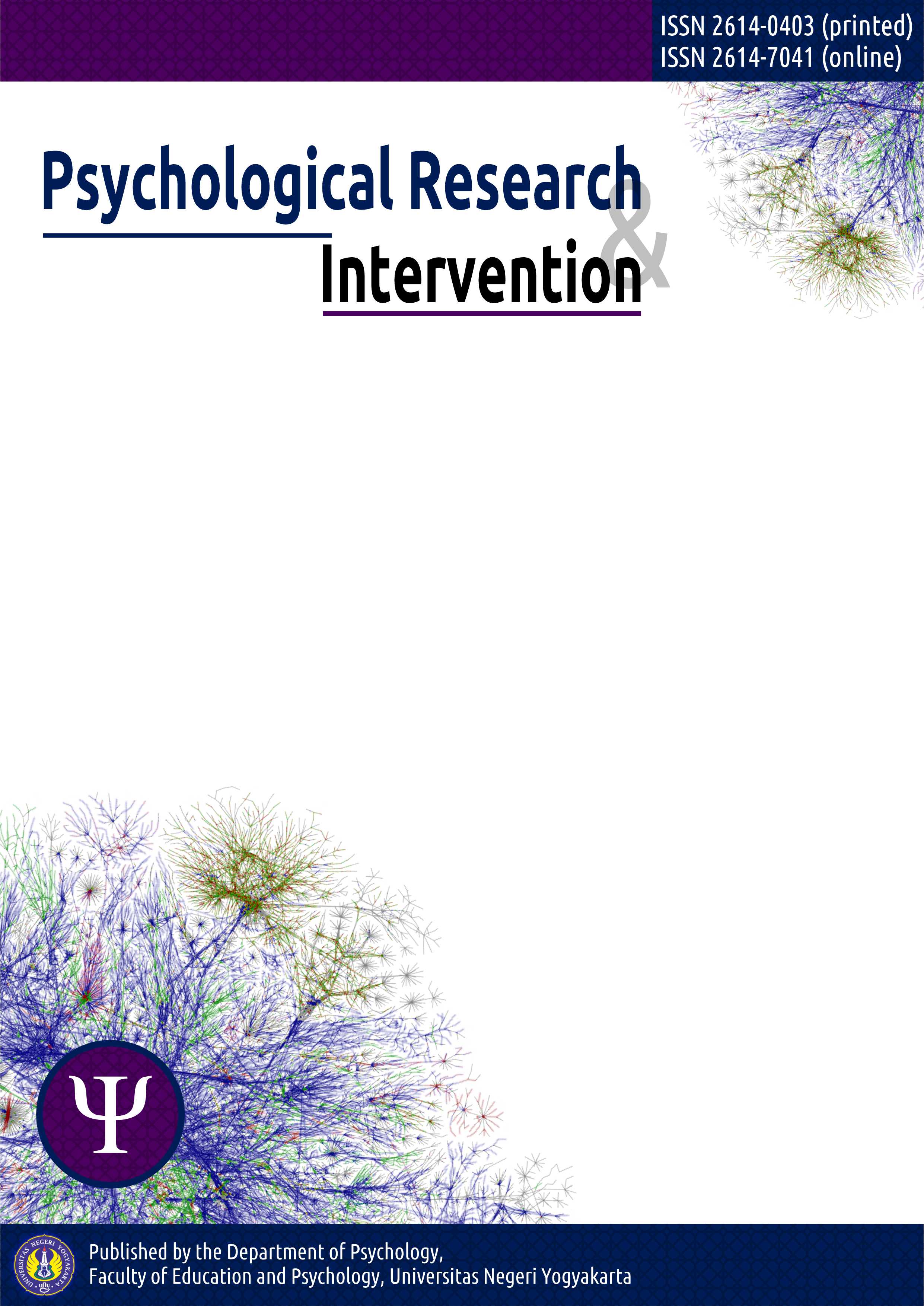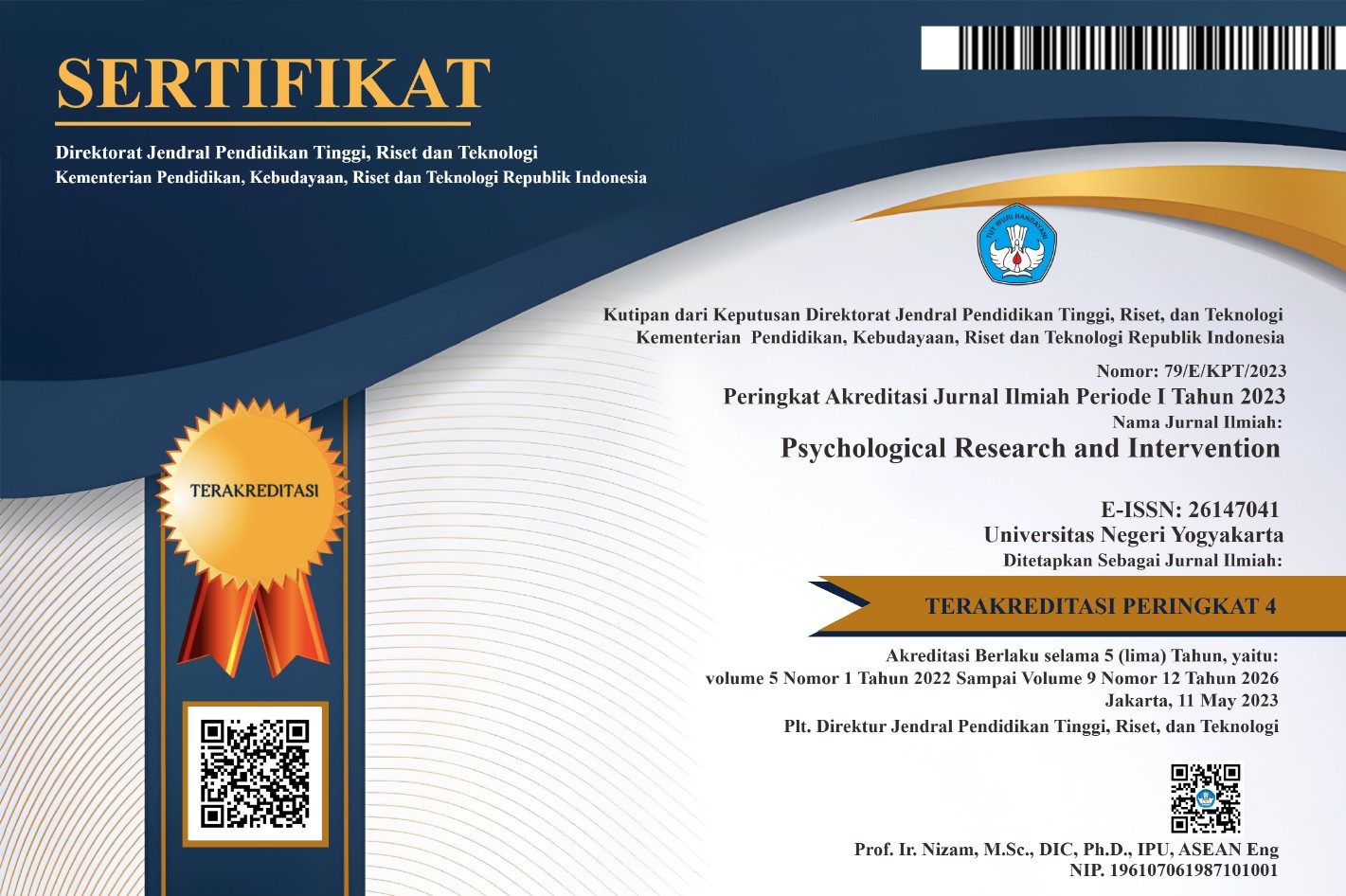Improvement of interpersonal and intrapersonal intelligence through traditional games
DOI:
https://doi.org/10.21831/pri.v1i1.21192Keywords:
traditional games, interpersonal intelligence, intrapersonal intelligenceAbstract
This study aims to: (1) improve interpersonal intelligence through traditional games for Kindergarten A students of RumahKu Tumbuh, (2) increase intrapersonal intelligence through traditional game on Kindergarten A students of RumahKu Tumbuh, and (3) describe the process of improving interpersonal and intrapersonal intelligence through these traditional games. This study is a classroom action research, referring a modified version of the Kemmis and Taggart model. Data were collected using observation and interviews. The findings show that there is an increase in interpersonal and intrapersonal intelligence through traditional game on kindergarten. Improved interpersonal intelligence of children overall in the pre-cycle obtained an average score of 22.59 (very low category), increased to 27.06 in cycle 1 (low category), and increased again to 34.65 with category in cycle 2. As for the increase in child intrapersonal intelligence overall score obtained in the pre-cycle average of 16.82 with a very low category, increasing to 21.35 with a low category in cycle 1 and increased again to 25.88 with category in cycle 2. The process of improving interpersonal intelligence through play action includes child benefit interact in-game, effective communication when asked and answered during play, and pursuing a strategy to win in the game, while at the intrapersonal include children express their emotions in the game, and children know their feelings by doing a question and answer session with the teachers at the end of the game.References
Brewer, J.A. (2007). Introduction to early education: Preschool through primary grades. United States: Pearson.
Denevers, D.M. (2014). Interpersonal intelligence and problem-based learning. Master of education program theses. Paper 53.
Emolu, E. (2014). Play, toy and gender socialization. Journal Plus Education, 11(2), 22-30.
Eberle, S. (2011). Playing with the multiple intelligences how plays helps them grow. American Journal, 4(1), 19-51.
Gardner, H. (2006). Multiple intelligences: The theory in practice (5th ed.). New York, NY: Basic Books.
Gardner, H. (2013). Multiple intelligences (kecerdasan majemuk). Batan: Interaksara.
Jamaris, M. & Edwita. (2014). Formal multiple intelligences assesment instrument for 4-6 years old children. American Journal of Education Research, 2(12), 1167-1174.
Lwin, M. (2008). Cara mengembangkan berbagai komponen kecerdasan. Yogyakarta: PT. Indeks.
Papalia, D.E. & Feldman, R.D. (2014). Menyelami perkembangan manusia (12th ed.). Jakarta: Salemba Humanika.
Saad, H.M. (2006). Perkelahian pelajar: Potret siswa SMU di DKI Jakarta. Yogyakarta: Galang Press.
Santrock, J.W. (2007). Life span development (5th ed.). Jakarta: Erlangga.
Seriati, N.N. & Hayati, N. (2010). Permainan tradisional jawa gerak dan lagu untuk menstimulasi keterampilan sosial anak usia dini. Accessed on 22 June 2016 from http://staff.uny.ac.id/sites/default/files/Artikel%20Permainan%20Tradisonal.pdf.
Slavin, R.E. (2011). Educational psychology: Theory and practice (10th ed.). Boston, MA: Pearson.
Smith, M.K. (2008). Howard Gardner, multiple intelligences and education. Accessed on 16 September 2014 from http://Infed.Org/Mobi/Howard-Gardner-Multipleintelligences-And-Education/.
Sujiono, Y.N. (2013). Konsep dasar pendidikan anak usia dini. Jakarta: Indeks.
Sungur, S. & Tekkaya, C. (2006). Effects of problem-based learning and traditional instruction on self-regulated learning. Journal of Educational Research, 99(5), 307-317.
Wandansari, F. (2014). Perkembangan anak dalam lingkungan. Bandung: Rosdakarya.
Yusuf, S. (2010). Psikologi perkembangan anak dan remaja. Bandung: Rosdakarya.












